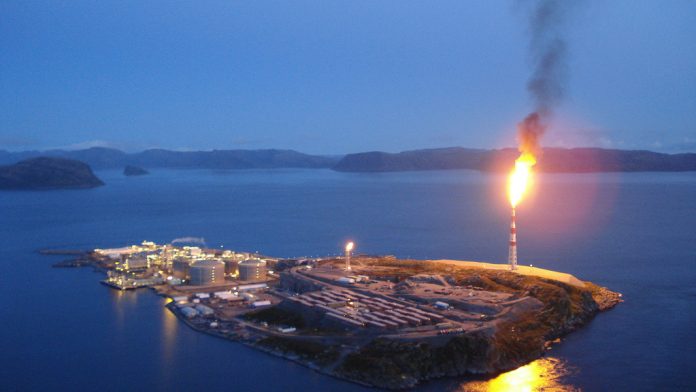(THIS ARTICLE IS MACHINE TRANSLATED by Google from Norwegian)
In Paris, today I have been on an almost surrealistic show.
With the title "Working together for a successful energy transition: EU Norway Energy Conference" (see also here ) we got a display in advertising for Norwegian gas. With almost identical contributions from Norway's Minister of Petroleum and Energy Kjell Børge Freiberg, Wintershall CEO Mario Mehren, Eirik Wærness in Equinor and finally James Watson in the Eurogas trade organization, the following mantra was repeated and repeated: Norwegian gas is flexible, credible, affordable (?) And available. By replacing coal with Norwegian gas, the EU can achieve its climate goals cost-effectively. Extraction of Norwegian gas has the lowest CO2 imprint in the world.
 Not once was there a word about the costs involved in replacing coal with gas. Not a word was mentioned about the gas's geopolitical impact in that increased consumption is also dependent on Russian gas – which will send ex-Soviet satellite countries back into the Kremlin's claws. Not a word was mentioned that gas is actually a fossil fuel with significant greenhouse gas emissions.
Not once was there a word about the costs involved in replacing coal with gas. Not a word was mentioned about the gas's geopolitical impact in that increased consumption is also dependent on Russian gas – which will send ex-Soviet satellite countries back into the Kremlin's claws. Not a word was mentioned that gas is actually a fossil fuel with significant greenhouse gas emissions.
How can Norwegian gas contribute to value creation in the recipient countries?
Okay. Of course, it is the interest of the Norwegian government, Equinor and other gas companies to sell as much gas as possible. We're going to make money. But if we are to fight Norwegian gas, we should devote some thoughts to the customer's situation. For example: How can Norwegian gas contribute to value creation in the recipient countries? How can Norwegian gas help restore European industry? How can Norwegian gas help to develop the Hydrogen economy? to jobs and to economic growth?
Because if we are to make an impact in Brussels, we have to think European – see the solutions in a European perspective – and not appear as the Volkswagen salesman at Bekkestua who presses the same button every time a customer enters the door.
The exception
An honorable exception was the post Raymond Johansen which presented Oslo's ambitions to cut CO2 emissions by 95 per cent by 2030 – and how the Klementsrud plant's waste incineration with CO2 capture and storage can help reduce the costs of the other 500 plants in European cities. Raymond emerged as a capable and clear European politician. Too bad he didn't post in the first part of the program.
Now, I do not want to portray EU Energy Commissioner Miguel Arias Cañete as the great hero. For the EU's energy picture has a completely different starting point than ours. But the contrast to the minister's speech was striking. Cañete first talked about the new climate and energy directives that have recently been adopted: burden sharing, CO2 emissions from cars, land use and land use change and forestry, energy use in buildings, renewables, energy market, the management mechanism – in general; we were introduced to the breadth of the EU's climate – related regulations. Then he drew up the 2050 scenario – about the EU's path to climate neutrality in 2050. Common to all the measures was to create jobs and economic growth.
Required energy source
Johan Falnes writes in E24 that Cañete stressed that EU gas imports will continue for "a few decades to come." For which he said: "The EU will not reach 100% renewables overnight." In other words, gas is a necessary source of energy in the transition to the renewable community.
Subsequently, Cañete devoted much of his speech to CCS / CCUS and praised Norway's efforts. We need CCS "where we have no other choice" – he said several times. First and foremost in energy-intensive industries, but also in combination with renewable biomass to remove carbon from the atmosphere.
On September 5, the Commission and the Government will hold a large CCS conference in Oslo. Let's hope the government's political advisers and speechwriters are inspired by the EU's holistic thinking – that they show that Norwegian energy policy has more legs – and that our goal is the same as the EU's: Job-creating economic growth without greenhouse gas emissions by 2050.
Also read: AS Norway: A capitalist actor, without sufficient conscience


